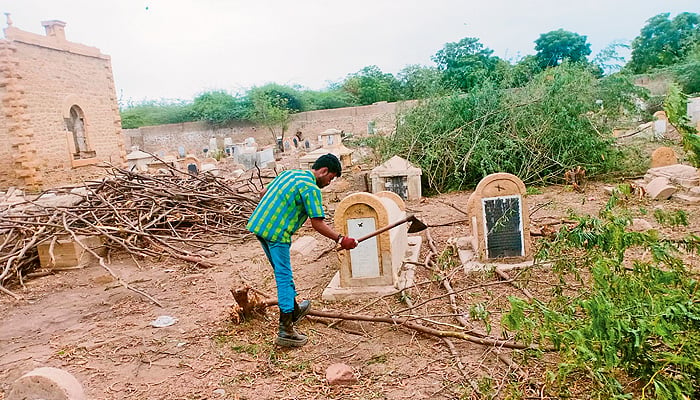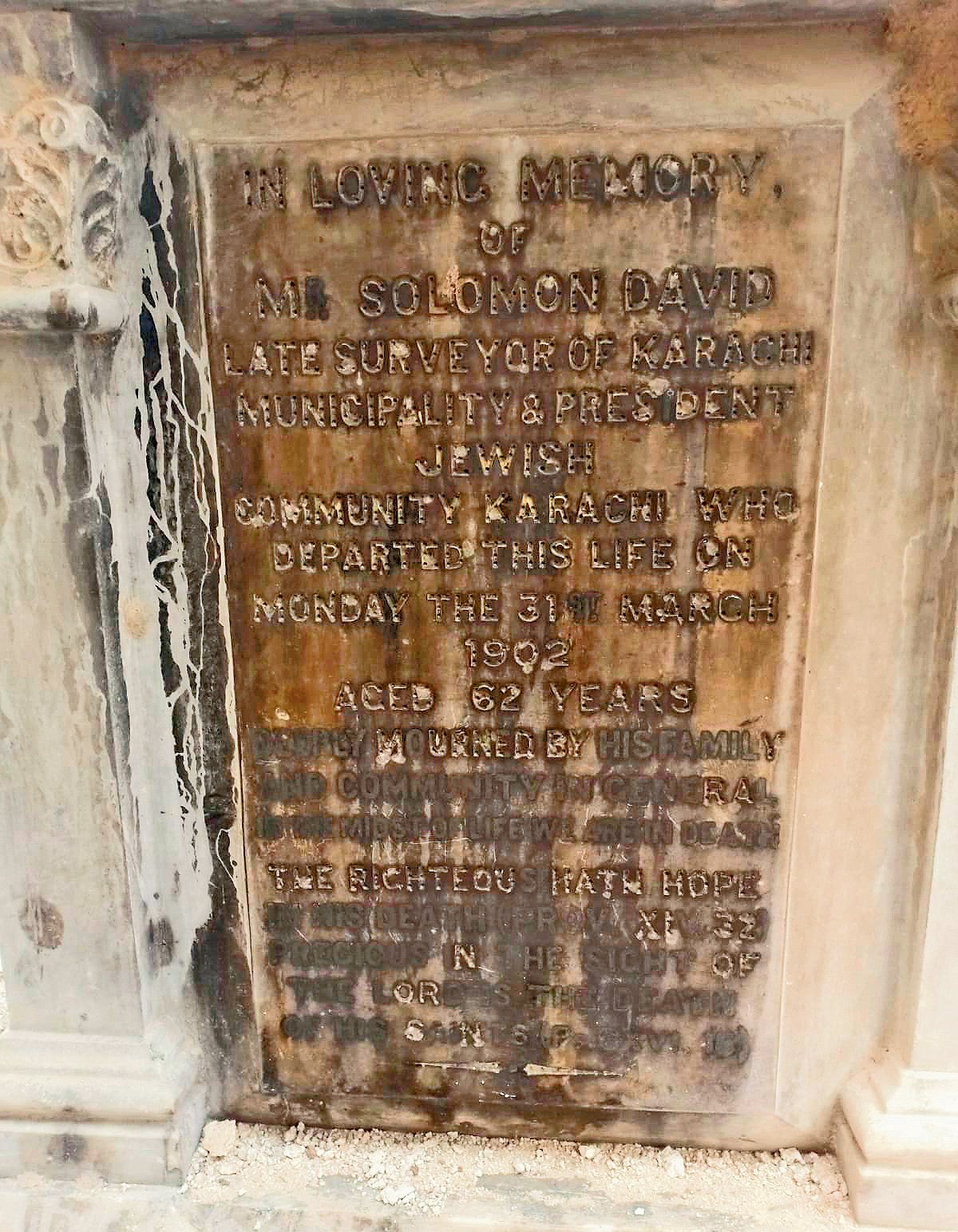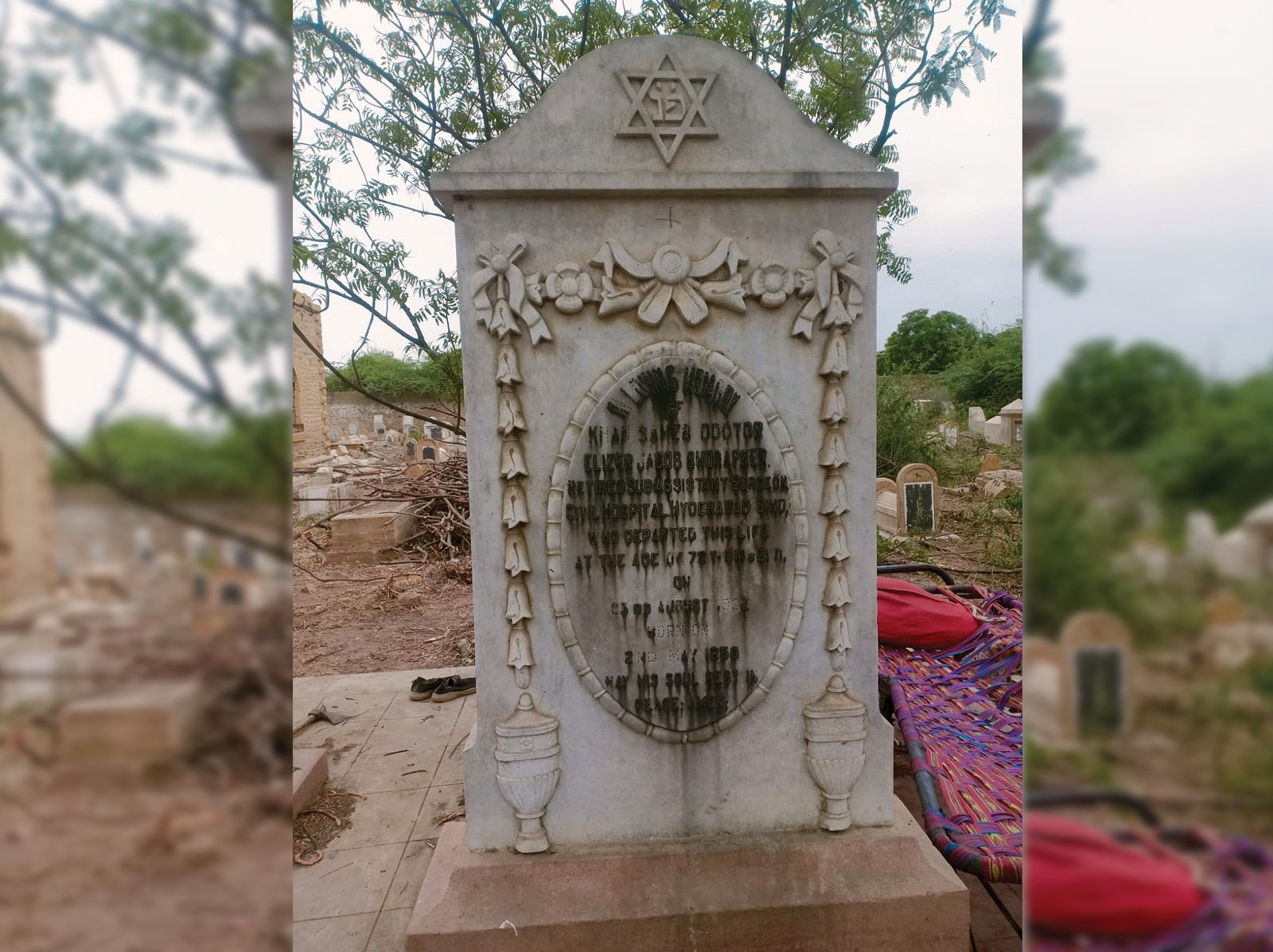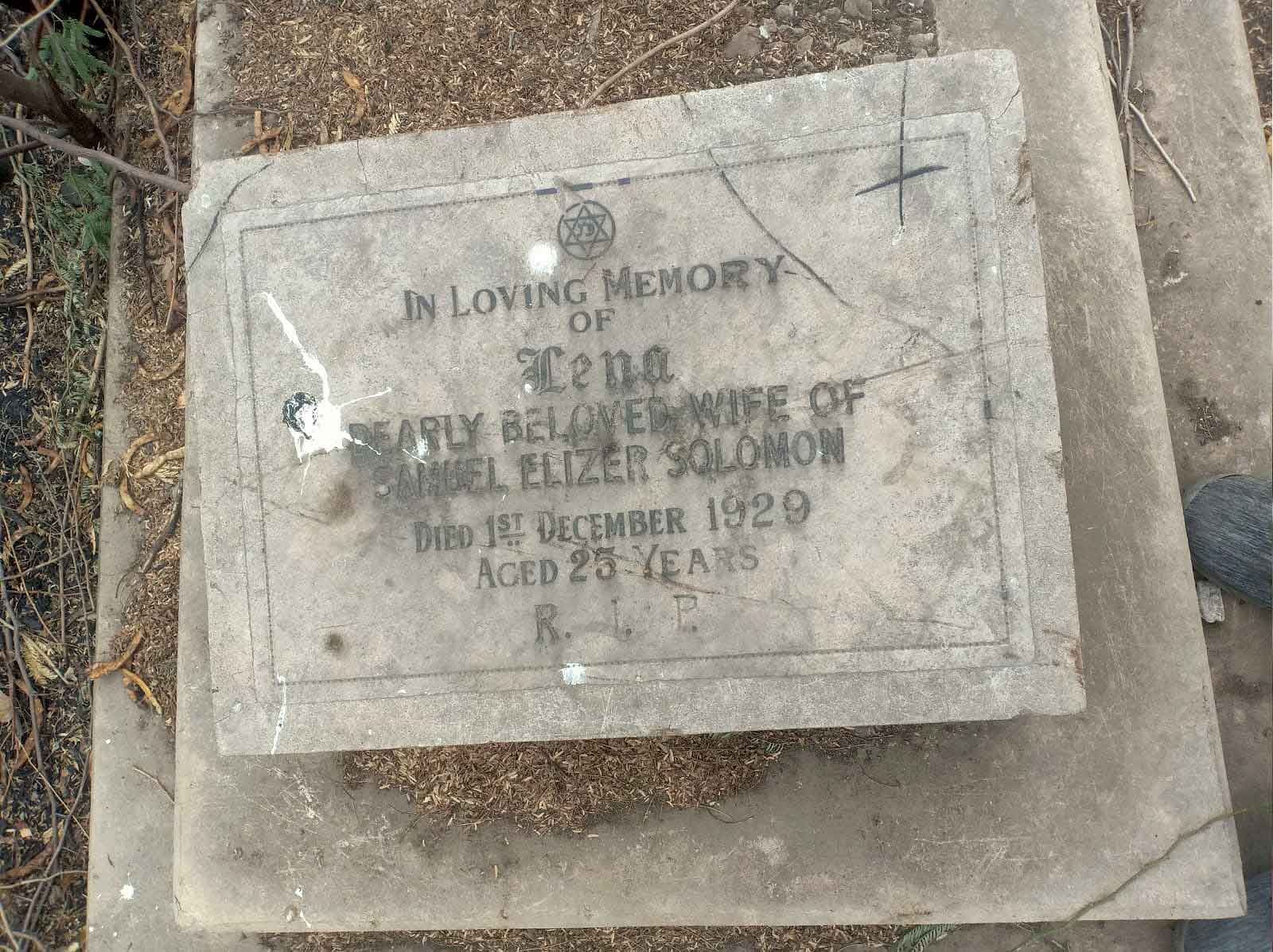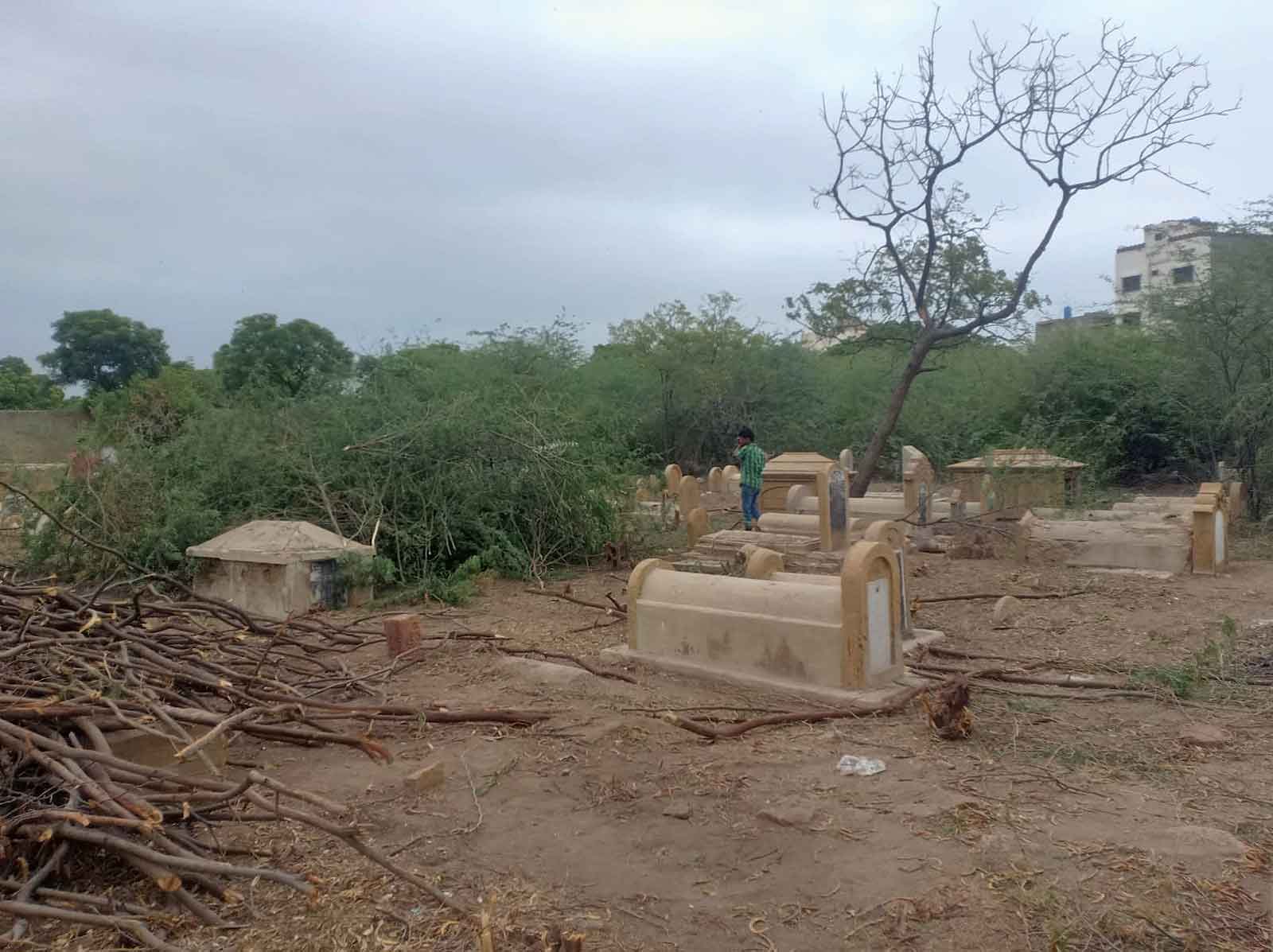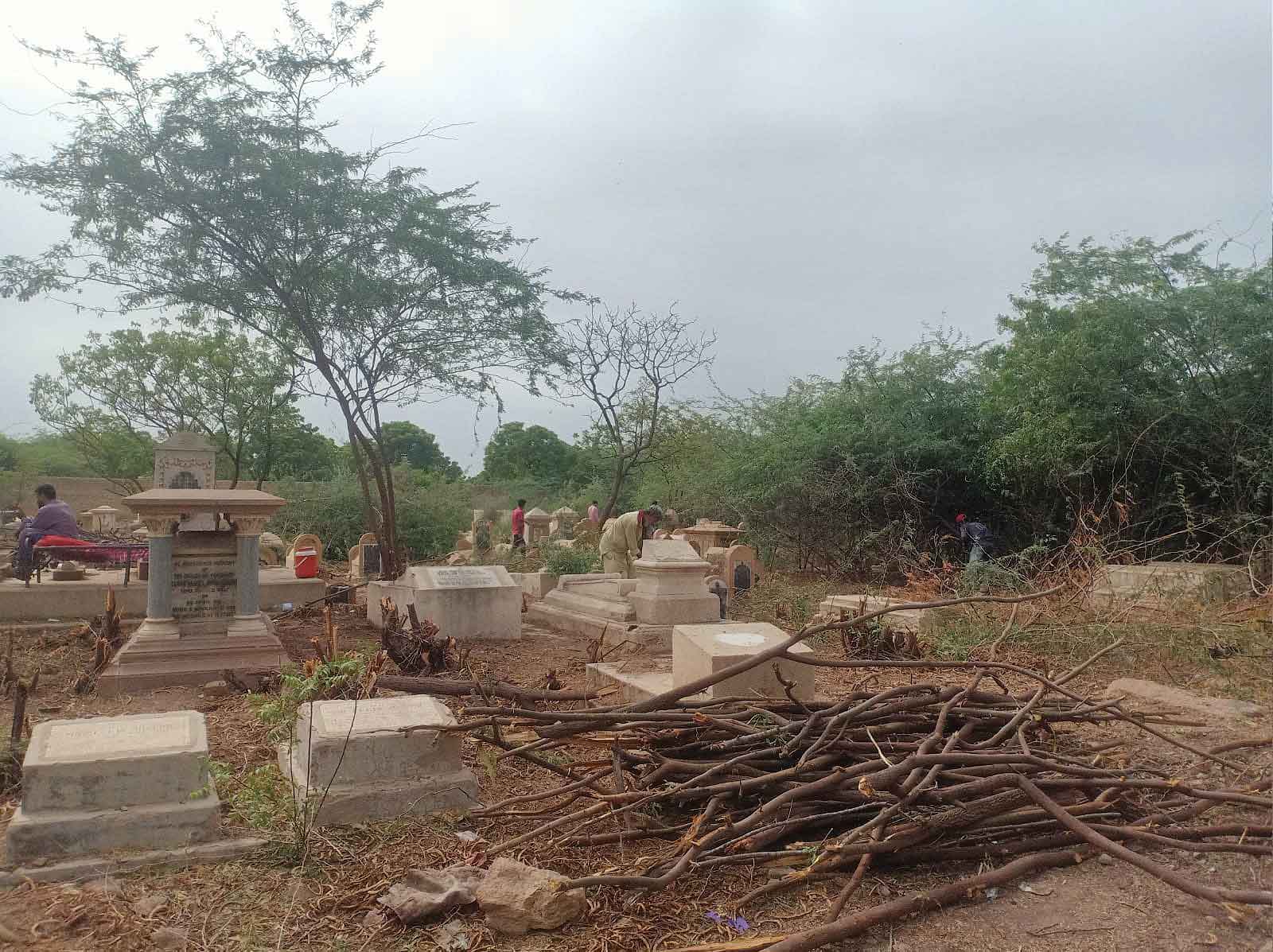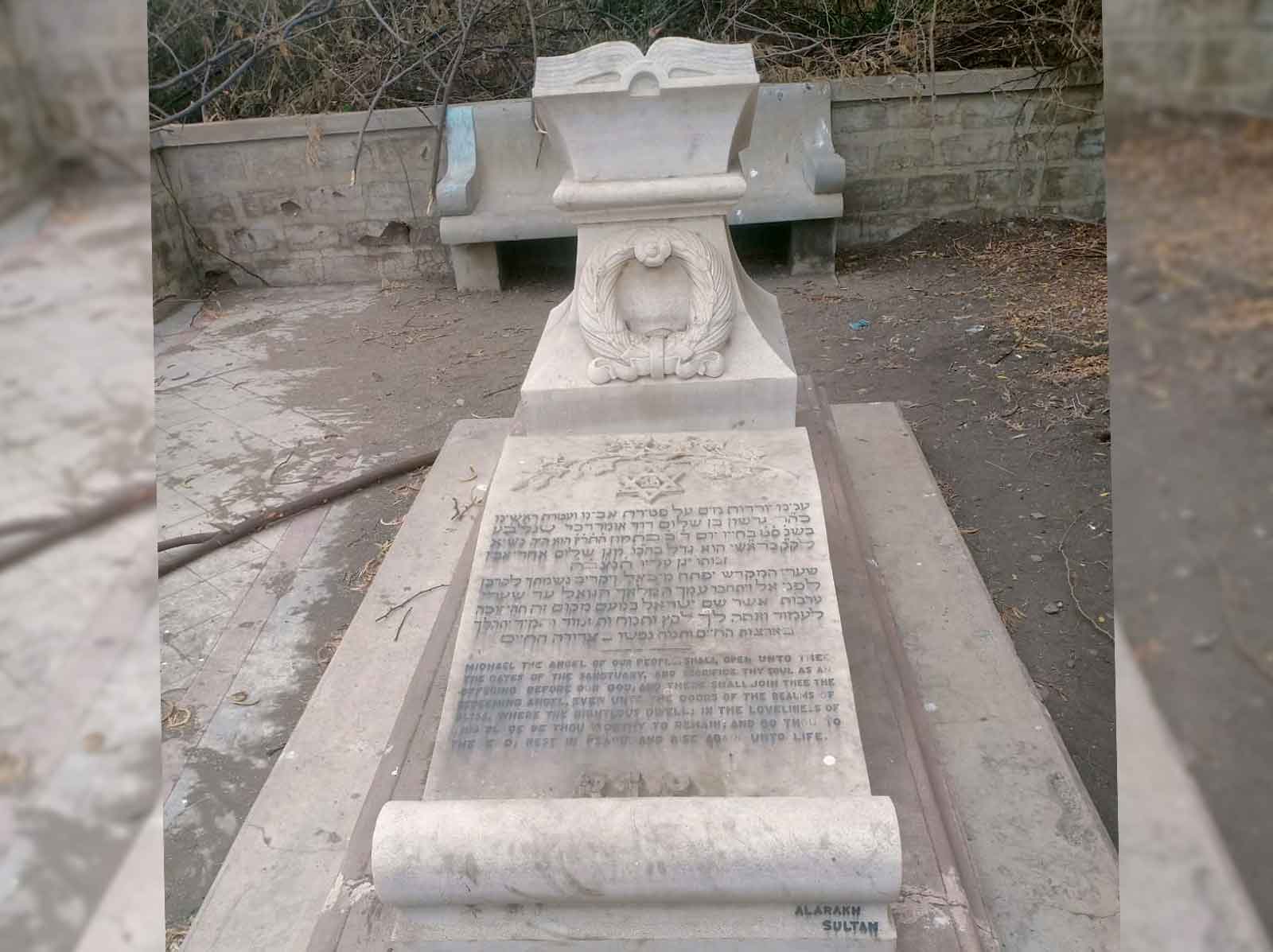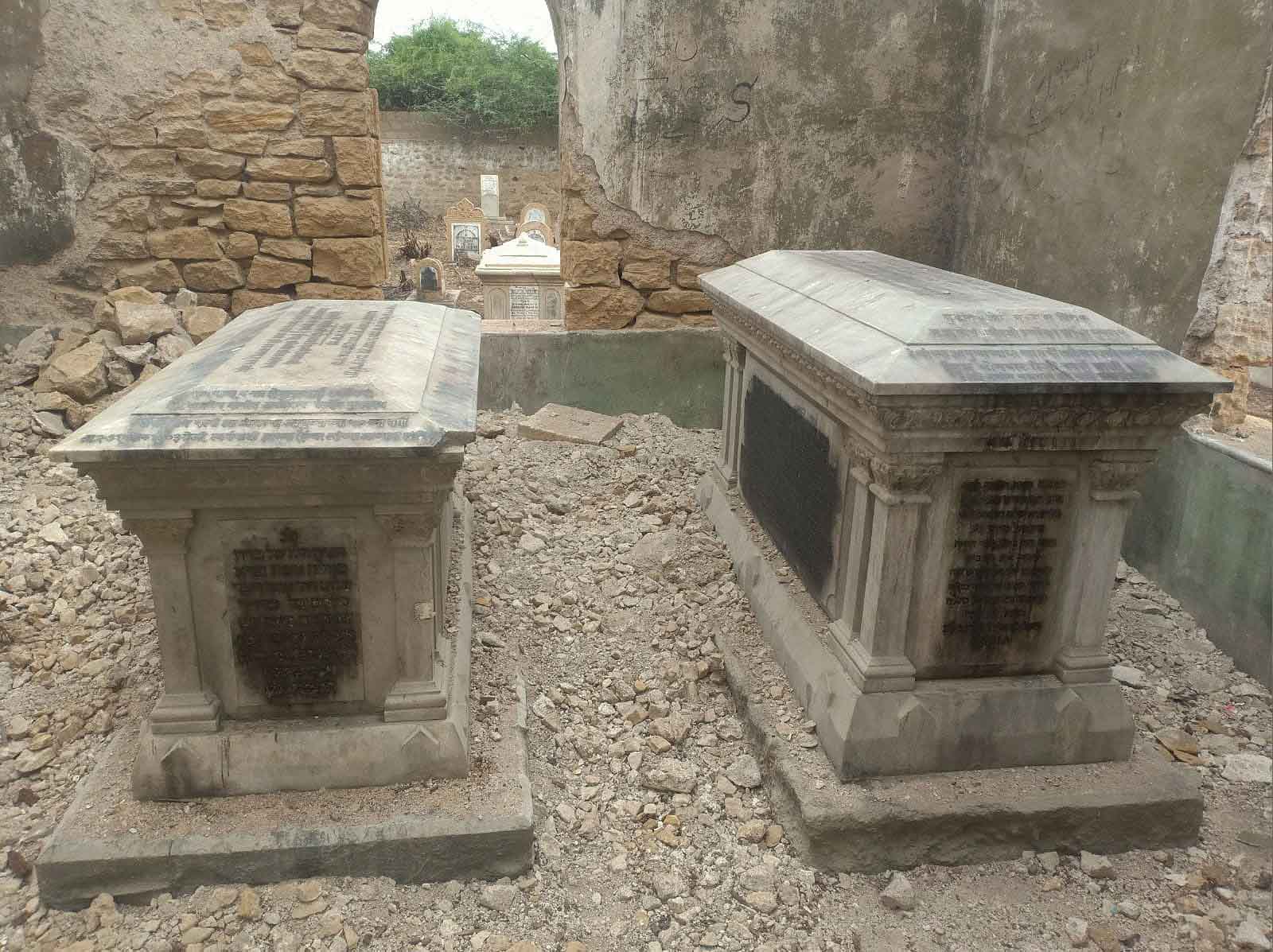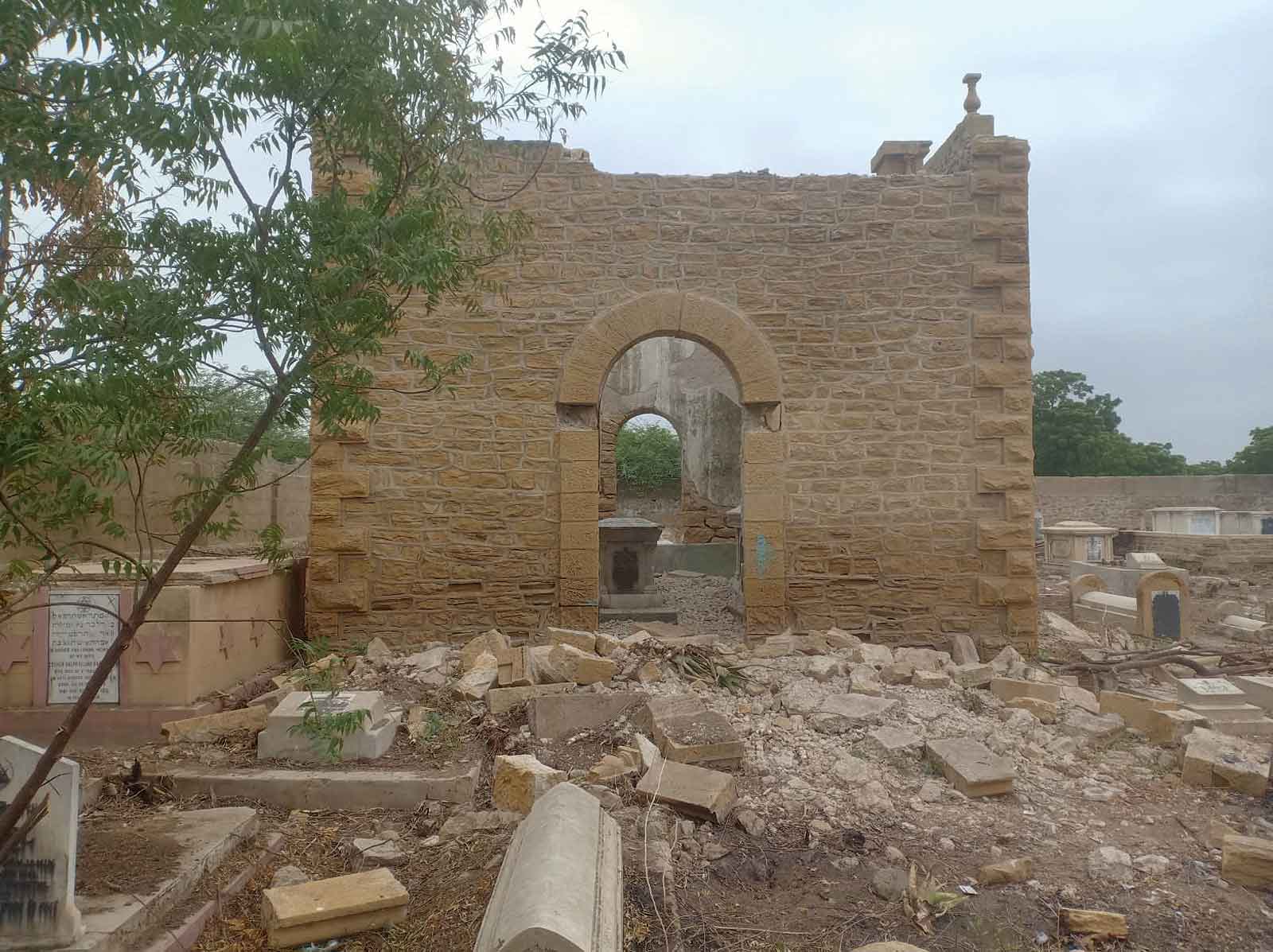Largest Jewish cemetery in Karachi near Mewa Shah being restored under private initiative
Located in the Old City area of Karachi, the Jewish cemetery has deteriorated to the point of becoming a ruin
It is the responsibility of the government to ensure proper maintenance of historical places and heritage sites. However, as the government often fails on this front, some private persons take this upon themselves to preserve historical places of their region.
One such individual is a woman who has been trying to restore the largest Jewish cemetery in Karachi, which has been in a shambles due to decades of neglect, to its original condition.
Located in the Old City area of Karachi, the Jewish cemetery has deteriorated to the point of becoming a ruin. Now, this woman is working tirelessly to bring it back to its original state without any government assistance.
Abandoned place
Once the population of Karachi also comprised the Jewish community who would bury their deceased members at the Bene Israel Cemetery located near Mewa Shah, the biggest and oldest graveyards of Karachi.
As the Jews eventually left the city, their cemetery was abandoned. Now when one enters the place, they are unable to see any grave because the entire area is shrouded in wild shrubs and overgrown tangled weeds.
“Years have passed with nobody coming here to restore it,” said a 53-year-old man, Arif Chand Baloch, who has been living in a small cottage on the premises of the graveyard where his father served as the caretaker. After his father, he also started taking care of the place but since people had stopped visiting the graves, he could not get any financial returns for his services and had to switch to another job.
The cemetery was spread over 2.5 acres, and had around 600 to 700 graves, he explained, adding that that some of the graves had been properly built with marbles and had epitaph in English, Hebrew or both languages, whereas, other graves were simply mounds. “I am now 53 and the last body was buried here when I was just 15 years old,” he recalled.
When asked whether anyone still came there to visit graves of loved ones, he said: “Some four to five years ago, one Jewish woman had arrived to visit her grandmother’s grave and she only gave me Rs10,000.”
“Taking care of a graveyard and its maintenance is important. We are here for more than 60 years. Earlier my father was taking care of the graveyard but right now, I am unable to take care of it because of financial issues. I am still ready for it, but without financial help, I cannot do anything,” he said.
He called for fixing the salaries of caretakers of graveyards so that they could be properly maintained.
Restoration work
The woman who has initiated restoration work at the cemetery lives in the Defence area and is currently in the United States.
Speaking over phone on condition of anonymity, she explained that she had hired a team of locals to restore the graveyard.
“We will restore it to its original position and bear all the expenses for it,” she said, adding that she had hired a young man, Shah Zaman, to oversee the restoration work at the cemetery.
Zaman informed The News that he had initiated the restoration work with around half-a-dozen workers who were being paid by the woman. “Madam has asked us to restore it to its original position in six weeks,” he said, adding that in the first stage, they were clearing the graveyard of wild bushes.
“All the graves were covered with wild shrubs when we came here to start the work. Now, almost a week has passed and we have cleared around 25 per cent of the area,” Zaman said.
He vowed that after a month, the entire cemetery would like what it had been before it was abandoned.
Explaining how the idea of the restoration work originated, Zaman said the woman’s son lived in the US where his friend watched a video on social media showing the worsened condition of the graveyard and suggested that it be restored.
He added that his team had earlier restored another Jewish cemetery in Karachi that is located near Lyari’s famous Cheel Chowk. “That Jewish cemetery is small with around 26 graves and after restoring that, we came here to restore it and it is a very difficult work because it is a big graveyard and we have to restore the broken graves, boundary wall and gate.”
He disclosed that once they had finished the work, they were planning to hire Baloch for the maintenance of the place so that it does not fall again into disrepair.
-
 Timothee Chalamet Admits To Being Inspired By Matthew McConaughey's Performance In 'Interstellar'
Timothee Chalamet Admits To Being Inspired By Matthew McConaughey's Performance In 'Interstellar' -
 'Determined' Savannah Guthrie Plans To Honour Her Mother Nancy With Major Move: 'It's Going To Be Emotional'
'Determined' Savannah Guthrie Plans To Honour Her Mother Nancy With Major Move: 'It's Going To Be Emotional' -
 Train's Pat Monahan Blows The Lid On 'emotional' Tale Attached To Hit Song 'Drops Of Jupiter'
Train's Pat Monahan Blows The Lid On 'emotional' Tale Attached To Hit Song 'Drops Of Jupiter' -
 Kurt Russell Spills The Beans On His Plans For Milestone Birthday This Year: 'Looking Forward To It'
Kurt Russell Spills The Beans On His Plans For Milestone Birthday This Year: 'Looking Forward To It' -
 PayPal Data Breach Exposed Sensitive User Data For Six-month Period; What You Need To Know
PayPal Data Breach Exposed Sensitive User Data For Six-month Period; What You Need To Know -
 Prince William Receives First Heartbreaking News After Andrew Arrest
Prince William Receives First Heartbreaking News After Andrew Arrest -
 11-year-old Allegedly Kills Father Over Confiscated Nintendo Switch
11-year-old Allegedly Kills Father Over Confiscated Nintendo Switch -
 Jacob Elordi Talks About Filming Steamy Scenes With Margot Robbie In 'Wuthering Heights'
Jacob Elordi Talks About Filming Steamy Scenes With Margot Robbie In 'Wuthering Heights' -
 Why Prince Harry Really Wants To Reconcile With King Charles, Prince William, Kate Middleton?
Why Prince Harry Really Wants To Reconcile With King Charles, Prince William, Kate Middleton? -
 'Grief Is Cruel': Kelly Osbourne Offers Glimpse Into Hidden Pain Over Rockstar Father Ozzy Death
'Grief Is Cruel': Kelly Osbourne Offers Glimpse Into Hidden Pain Over Rockstar Father Ozzy Death -
 Timothée Chalamet Reveals Rare Impact Of Not Attending Acting School On Career
Timothée Chalamet Reveals Rare Impact Of Not Attending Acting School On Career -
 Liza Minnelli Gets Candid About Her Struggles With Substance Abuse Post Death Of Mum Judy Garland
Liza Minnelli Gets Candid About Her Struggles With Substance Abuse Post Death Of Mum Judy Garland -
 'Saturday Night Live' Star Will Forte Reveals How He Feels About Returning To The Show After 2010 Exit
'Saturday Night Live' Star Will Forte Reveals How He Feels About Returning To The Show After 2010 Exit -
 Police Officer Arrested Over Alleged Assault Hours After Oath-taking
Police Officer Arrested Over Alleged Assault Hours After Oath-taking -
 Maxwell Seeks To Block Further Release Of Epstein Files, Calls Law ‘unconstitutional’
Maxwell Seeks To Block Further Release Of Epstein Files, Calls Law ‘unconstitutional’ -
 Prince William Issues 'ultimatum' To Queen Camilla As Monarchy Is In 'delicate Phase'
Prince William Issues 'ultimatum' To Queen Camilla As Monarchy Is In 'delicate Phase'
